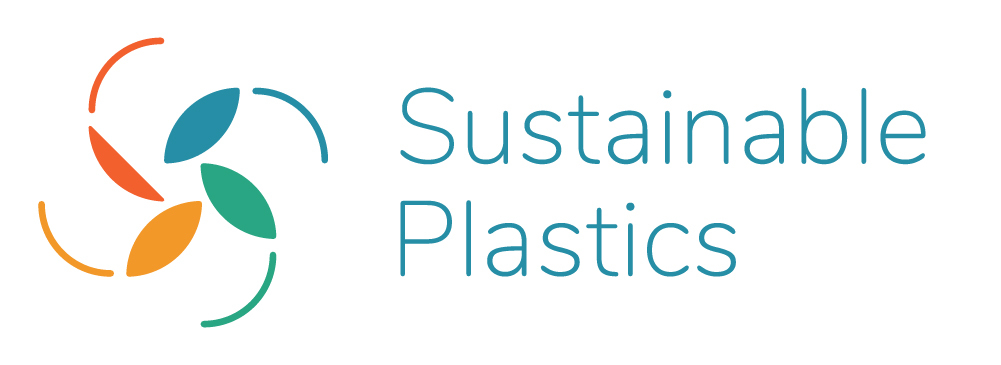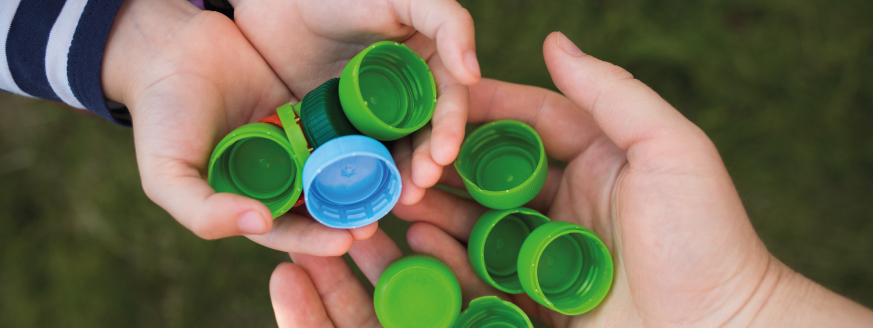Sustainable Plastics
Mobilizing Agenda for Sustainable Plastics
Challenge
The SUSTAINABLE PLASTICS project aims to promote the green transition of the Plastics Industry towards the Circular Economy and intends to be the Mobilizing Agenda for Sustainable Plastics in Portugal, capable of driving the sector's transition to a truly circular economy.
It arises from an initiative of APIP, led by LOGOPLASTE INNOVATION LAB, and aims to mobilize the private sector, national authorities, universities, and citizens, contributing to the goals of the European Circular Economy. The initiative is based on three pillars:
i) Reduction of greenhouse gas emissions (GHG);
ii) Increased resource efficiency;
iii) Job creation.
Given the complexity of the Plastics Industry value chain, which involves a wide range of stakeholders (e.g., producers of plastic materials and raw materials, transformers, machinery and equipment manufacturers, brand-owners, retailers and distributors, waste management agents, among many others), it has become essential to promote the creation of an innovation ecosystem capable of involving all these economic agents, as well as consumers, in addressing the challenges posed by the Circular Economy.
Solution
The SUSTAINABLE PLASTICS Agenda aims to mobilize the private sector together with national authorities, universities and citizens, contributing to the objectives of the European Circular Economy of reducing greenhouse gas emissions, greater resource efficiency and job creation. The Agenda is structured into 7 Work Packages that, in conjunction, will promote the Green Transition of the Plastics Industry to the Circular Economy. To this end, the planned activities focus on 4 main axes, namely:
i) Circularity through Material Design;
ii) Circularity through Product Design;
iii) Circularity through Recycling;
iv) Circularity through Alternative Raw Materials.
Objectives, Activities and Results expected / achieved
The Laboratory of Testing, Wear, and Materials (LED&MAT) at IPN is part of this consortium, and at the technical level, LED&MAT has a strong involvement in 2 out of the 14 Technical PPS (Products, Processes, Services):
i) Recycled and 100% recyclable packaging suitable for food contact;
ii) Biodegradable composites derived from fiber waste.
LED&MAT's contribution to these two Technical PPS is based on extensive experience and know-how regarding the comprehensive analysis and characterization of new polymeric-based formulations for subsequent comparison with what currently exists in the market. To achieve this, it will develop, in collaboration with PSS partners, fully recycled solutions for use in the field of food packaging, ensuring the safety of their application in this context.
On the other hand, the application of biodegradable resins in components and products constructed with composite materials is also an objective to be achieved, thus ensuring a strong sustainability component in any of the relevant PPS, at a time when polymers are targeted materials due to their environmental impact. Therefore, it is important to rethink their entire production and application in the context of a Green Economy.
The environmental life cycle assessment of the products developed during the PPS will also be the subject of study in the project's later years to assess their sustainability through the Life Cycle Assessment (LCA) methodology.

Project Reference
C644912598-00000021Funding

Total Investment
39.161.832,03IPN Investment
457.392,38Total Eligible
39.161.832,03IPN Eligible
457.392,38EC Funding – Total
24.447.875,19EC Funding – IPN
457.392,38Duration
42 MonthsStart Date
2022-09-01End Date
2026-06-30Approval Date
2022-09-15Consortium
Logoplaste Innovation Lab, LDAMC Shared Services, SA
Vodafone Portugal - Comunicações Pessoais SA
IKEA Industry Portugal, SA
Super Bock Bebidas, SA
Yesols, Sociedade Unipessoal LDA
Mendes Gonaçalves, SA
ECOIBERIA - Reciclados Ibéricos, SA
Plasticos Futura, LDA
COMPONIT, LDA
Sacos 88 - Sociedade Internacional de Embalagens, SA
Sociedade Internacional de Embalagens, SA
Tecnologia de Sistemas e Equipamentos Industriais, LDA
Costa & Dias, LDA
Sociedade Industrial de Recuperados de Plástico, SA
PERIPLAST - Equipamentos Industriais, LDA
NEUTROPLAST - Indústria de Embalagens Plásticas, SA
PLASOESTE - Sociedade Transformadora de Plásticos, LDA
FLEXABO - Concentrados e Aditivos Plásticoss, SA
RESIFLUXO, LDA
PROEF Eurico Ferreira Portugal, SA
TRIMNW, Moulded Parts and Monwovens, LDA
J. Prior - Fábrica de Plásticos, LDA
Prilux - Comércio, Construção e Obras Públicas, LDA
Instituto Pedro Nunes
INDUMEL - Embalagens, Unipessoal, LDA
BIO4PLAS - Biopolímeros, LDA
Associação P+ortuguesa da Indústria de Plásticos
Resíduos do Nordeste, EIM, SA
Centro Tecnológico das Industrias Têxtil e do Vestuário de Portugal
Centro de Nanotecnologia e Materiais Técnicos, Funcionais e Inteligentes
Pólo de Inovação em Engenharia de Polimeros
Universidade de Coimbra
Instituto de Ciência e Inovação em Engenharia Mecânica e Engenharia Industrial
Instituto Politécnico de Leiria
INVENTIVEMATL, LDA
Instituto de Engenharia de Sistemas e Computadores, Tecnologia e Ciência
Logoplaste Portugal, LDA
Companhia Portuguesa de Amidos, SA
Sovena Portugal - Consumer Goods, SA
SAFIPLAS - Injecção de Plásticos, LDA
Tensai Indústria, SA
Associação Industrial e Comercial do Café
INCBIO, Unipessoal, LDA
Bluepharma - Indústria Farmacêutica, SA
Logoplaste, Consultores Técnicos, SA
Sociedade Exportadora de Artigos de Cortiça, LDA
Website
https://sustainableplastics.pt/en/Keywords
Circular EconomyEmission Reduction
Sustainable Plastics










